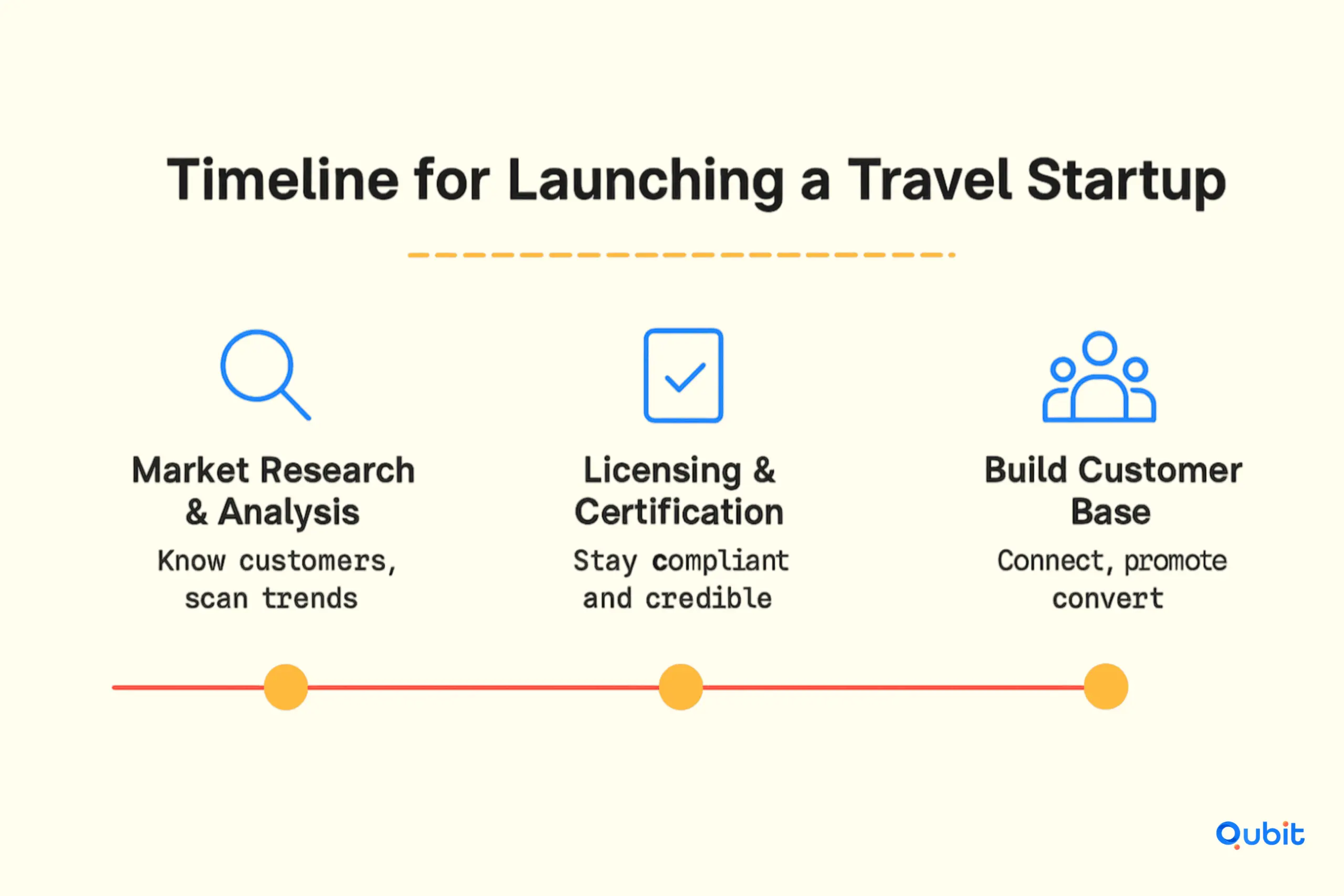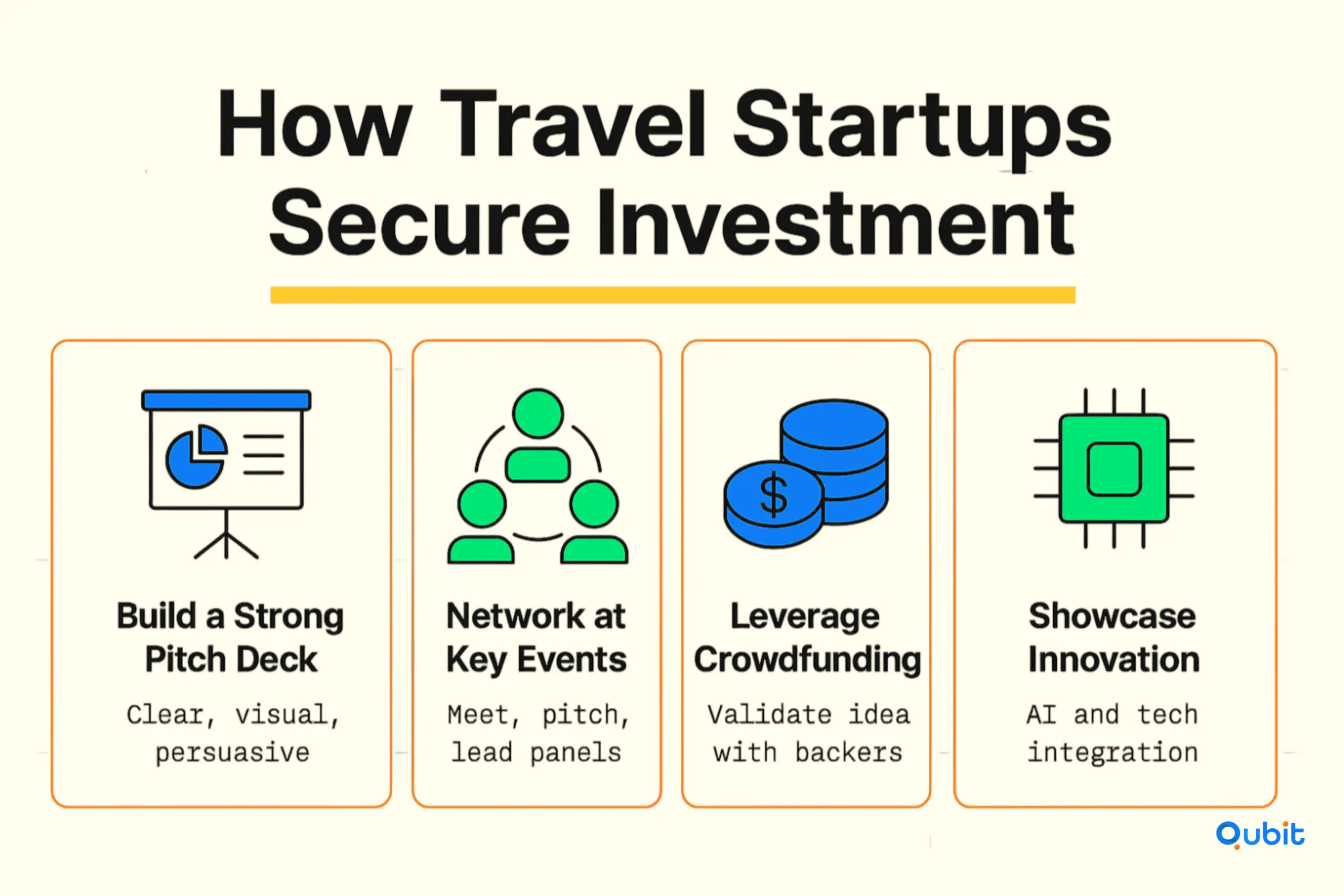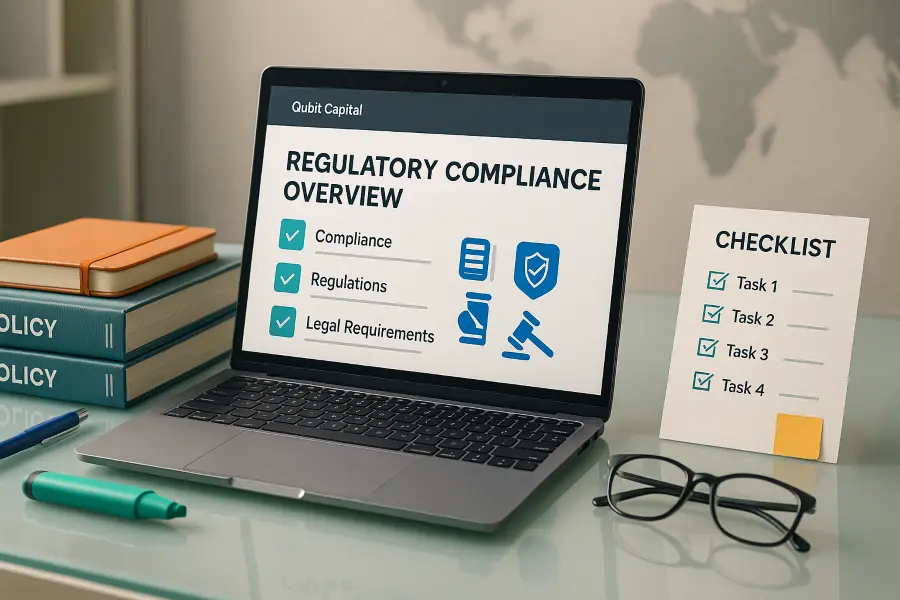The travel tech industry is booming, with startups attracting significant investor interest. However, securing funding requires more than just a great idea—it demands meticulous preparation. This blog offers a comprehensive regulatory checklist to help travel startups position themselves for investment success. From compliance requirements to operational readiness, understanding the essentials can make or break your pitch.
For those looking to refine their investor-facing documents, a deeper dive into travel startup pitch deck tips enriches your perspective by detailing design elements and content strategies that meet investor expectations.
Whether you're tackling challenges like budget constraints or inexperience, this guide will help you navigate the complexities of regulatory preparation. Let’s jump right in!
Travel Startup Overcoming Inexperience
Starting a travel agency without prior experience might seem daunting, but it’s far from impossible. Success in this field often hinges on a combination of self-education, building connections, and gaining hands-on exposure. Entrepreneurs can begin by exploring online courses that cover industry fundamentals, such as travel booking systems, customer service, and marketing strategies. These resources provide a solid foundation for understanding the operational aspects of the business.
Another effective approach is to seek internships or entry-level roles within established travel agencies. This practical exposure allows aspiring entrepreneurs to observe industry best practices and gain insights into customer preferences. Additionally, mentorship programs can be invaluable. Learning from seasoned professionals not only accelerates skill development but also helps avoid common pitfalls.
Travel Startup Bootstrapping Strategies
Launching a travel agency with limited capital requires creativity and resourcefulness. By focusing on commission-based earnings, free tools, and home-based operations, entrepreneurs can minimize expenses while building a sustainable business model.
1. Maximize Commission-Based Revenue
One of the most practical ways to generate income early on is through commissions. Travel agencies typically earn a potential 10-15% commission range on bookings, which can provide a steady revenue stream without upfront investment. This realistic revenue model helps sustain growth during the initial stages, even with constrained budgets.
2. Utilize Free Resources
Free tools and platforms can significantly reduce startup costs. From social media scheduling tools to customer relationship management (CRM) software, there are numerous options available to streamline operations without incurring expenses. For example:
- Social Media Management Tools: Platforms like Buffer or Hootsuite offer free plans to help schedule posts and engage with potential clients.
- CRM Software: HubSpot provides a free CRM solution to track leads and manage customer interactions effectively.
3. Operate from Home
Running your travel agency from home eliminates the need for office space, cutting down on overhead costs. A home-based setup also allows flexibility in working hours and reduces commuting expenses.
4. Invest in Digital Marketing
Digital marketing is essential for attracting clients without spending excessively. Focus on strategies like:
- Search Engine Optimization (SEO): Optimize your website and blog content to rank higher in search results.
- Social Media Campaigns: Use free or low-cost advertising options on platforms like Facebook and Instagram to target specific demographics.
- Email Marketing: Build an email list and send regular updates about travel deals and packages.
Travel Startup Launch Timeline
Launching a travel agency is a journey that typically unfolds over 6 to 12 months, requiring careful planning and execution across distinct phases. From conducting thorough market research to securing necessary licenses, each step plays a vital role in building a strong foundation for your business.

1. Market Research and Analysis
Understanding your target audience and competitors is the first step in creating a successful travel agency. This phase involves identifying customer preferences, analyzing industry trends, and pinpointing gaps in the market. A well-researched strategy ensures your services align with client needs while differentiating your agency from others.
2. Securing Licenses and Certifications
Compliance is crucial in the travel industry. Obtaining the required licenses, certifications, and insurance not only ensures legal operation but also builds trust with potential clients. Research the specific regulations in your region to avoid delays during this phase.
3. Building a Client Base
Establishing a loyal customer base is essential for long-term success. Networking with local businesses, attending industry events, and leveraging social media platforms can help you connect with potential clients. Offering personalized services and promotions during the initial months can also boost customer acquisition.
By implementing these strategies, you position your business for sustainable growth while meeting investor expectations. If you’re ready to take the next step, our Fundraising Assistance service is designed to help you secure the capital you need.
Importance of Efficient Timeline Management
Managing your timeline effectively is key to staying on track and avoiding unnecessary setbacks. Proactive networking, streamlined operations, and clear milestones can help you maintain momentum throughout the launch process.
By focusing on these well-defined phases and prioritizing efficiency, your travel agency can transition smoothly from concept to reality, setting the stage for sustainable growth.
Travel Startup Securing Investment
Attracting investors to a travel agency startup requires a blend of creativity, strategy, and innovation. By presenting a compelling pitch deck, engaging with industry professionals at events, and exploring crowdfunding platforms, startups can position themselves as lucrative opportunities. Highlighting cutting-edge features, such as AI integration, can further enhance investor confidence and interest.

1. Crafting a Winning Pitch Deck
A well-designed pitch deck is the cornerstone of investor outreach. It should clearly outline your startup’s mission, market potential, and unique value proposition. Incorporating visuals, concise data points, and a narrative that resonates with investors can make your presentation memorable.
- Focus on Innovation: Showcase how your travel agency stands out. For example, referencing the success of Wanderlust Journeys – Integration of AI technology with travel consulting demonstrates how advanced AI features can modernize travel consulting and attract tech-savvy investors.
- Highlight Market Demand: Use statistics and trends to emphasize the growing interest in personalized travel experiences powered by technology.
2. Networking at Industry Events
Industry events offer unparalleled opportunities to connect with potential investors. These gatherings allow startups to showcase their expertise, build relationships, and gain insights into investor priorities.
- Prepare a Strong Elevator Pitch: A concise and impactful pitch can spark interest during brief interactions.
- Participate in Panels or Workshops: Positioning yourself as a thought leader can enhance credibility and visibility.
3. Exploring Crowdfunding Platforms
Crowdfunding platforms can be a game-changer for travel startups seeking initial funding. These platforms not only provide financial support but also validate your business idea through community interest.
- Engage with Backers: Share updates and respond to queries to build trust and enthusiasm.
- Offer Incentives: Reward early supporters with exclusive perks, such as discounted travel packages or personalized itineraries.
4. Emphasizing Innovative Value Propositions
Investors are drawn to startups that embrace innovation. Integrating AI into travel consulting, as illustrated by Wanderlust Journeys, can transform customer experiences and streamline operations. This approach not only appeals to tech-focused investors but also positions your startup as forward-thinking and adaptable.
For additional strategies on securing funding, explore travel startup fundraising strategies.
Setting Milestones and Tracking Performance
To measure progress, create specific milestones tied to your business goals. Whether it’s reaching a revenue target or expanding your customer base, milestones provide direction and motivation. Additionally, tracking performance indicators like customer satisfaction and booking rates ensures you stay aligned with your objectives.
Conclusion
Securing investment requires more than just a compelling pitch; it demands a well-structured approach that blends regulatory compliance with investment readiness. Throughout this blog, we’ve emphasized the importance of crafting a clear, narrative-driven regulatory checklist to streamline processes and instill confidence in potential investors. Addressing challenges like limited experience or budget constraints is equally critical, as overcoming these hurdles can significantly enhance your startup’s appeal.
If you’re looking to raise while staying regulator-ready on a tight budget, at Qubit we understand compliance checklists, partner requirements, and investor readiness. Streamline diligence with our travel fundraising assistance and book a fast readiness review.
Key Takeaways
- A comprehensive regulatory checklist is essential for travel startups preparing for investment.
- Overcoming inexperience through self-education and strategic mentorship builds industry expertise.
- Effective bootstrapping and clear business planning are vital for securing funding.
- A step-by-step launch checklist improves operational efficiency and minimizes oversights.
- Leveraging digital tools and establishing trusted partnerships optimizes business travel management.
Frequently asked Questions
What are the legal requirements for starting a travel business?
Understanding the legal framework is crucial when launching a travel business. Requirements vary by location but typically include registering your business entity, obtaining a tax identification number, and adhering to local zoning laws.






